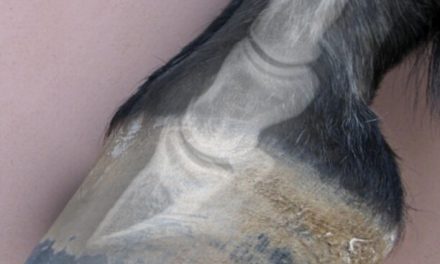January 2007
by Laurel Scott
No charges had been filed by press time in the case of the Sharpsburg woman on whose farm officials found dead and ailing horses in early December. The Washington County State’s Attorney was awaiting the results of veterinary assessments before determining how to proceed in the ongoing investigation of possible neglect.
The farm’s owner, Barbara Reinken, reportedly denied mistreating her horses, but admitted that she had more than she could handle. According to a spokeswoman at the Humane Society of Washington County (HSWC), Reinken appealed to have her 74 horses, which had been confiscated by officials, returned to her. A hearing on the case was reportedly scheduled for Dec. 21.
The investigation started when local authorities, prompted by complaints of a dead horse arrived at Windrinker Farm near the Antietam National Battlefield to discover a heartbreaking situation: 74 horses, 24 of them critically ill, with three buried carcasses, one dead foal, one dead yearling, and five sets of skeletal remains.
On Dec. 2, representatives of the Washington County Sherriff’s Department and the Humane Society of Washington County seized both the 33-acre property and the horses as part of their investigation. Most of the foals, yearlings, stallions and pregnant mares appeared sick and malnourished, with little feed available on the farm.
At the request of HSWC director Paul Miller, the Days End Farm large animal rescue team helped round up all 74 horses and tag them with identification numbers. The team then assisted veterinarians in assessing each individual’s health. The 25 most serious cases were transported to the Days End facility in Lisbon for further evaluation and rehabilitation in a more controlled environment. Unfortunately, one of the horses reportedly died while in transit.
Of the remaining horses, 22 are still at Windrinker Farm as of this writing, but under the care of Miller and other animal welfare specialists. At press time, a search was underway to find a more appropriate place to house this group of horses, which officials stressed can be hard to handle. The rest of the horses have been sent to private farms, officials confirmed.
According to Kathy Schwartz of Days End Farm, her facility – which took nine horses from the Lusby case and 24 from the Sharpsburg case – is now caring for a total of 74 equines.
Although Days End is no stranger to these situations, impoundments of this size are both difficult and expensive; besides basic care, the horses often need deworming, dental work, and vaccinations, as well as additional veterinary attention and even surgery.
The new horses, whose health is suspect, must be quarantined from the farm’s other residents. “We have foot baths set up throughout the farm, and we’re not doing tours for adoption or regular tours,” Schwartz reported.
Because this is a potential criminal case, Schwartz confirmed that none of the impounded horses can be adopted at this time.
HSWC officials asked that anyone who has had contact with Barbara Reinken over the last few years please contact their office at 301-733-2060, x237.











